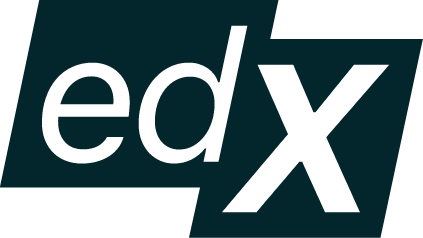
One of the most popular interview formats is the behavioral interview. Like any interview format, it can seem intimidating but is mastered with practice. Once you’ve practiced this skill, you’ll feel more confident and empowered during your interviews.
This guide will help you prepare for and respond to behavioral interview questions to impress employers in your next interview.
This guide is a complete and in-depth look into behavioral interviews. Read straight through, or use the agenda below to jump between topics.
- What is a behavioral interview?
- Why do employers care about behavioral interviews?
- How do I prepare for behavioral interviews?
- How do I formulate responses that will impress employers?
What is a behavioral interview?
If you have ever interviewed for a job, it’s likely that you’ve already experienced a behavioral interview. It is an extremely popular format. It is so ubiquitous that most people simply call them “interviews” without even calling out the behavioral approach. A behavioral interview is a type of job interview that focuses on a candidate’s past behavior and experiences to predict how they might perform in future work situations. Sound familiar?
Behavioral interviews consist of open-ended questions designed to elicit specific examples of how the candidate handles work-related scenarios. These questions typically begin with phrases like “Tell me about a time when…” or “Describe a situation where…” They can actually be quite fun to answer!
10 common behavioral interview questions
- Tell us about a milestone career goal that you’ve achieved.
- Describe a time when you had to work with a difficult coworker. How were you able to handle interactions with that person?
- Describe how you prioritize your time when completing multiple projects.
- Tell me about a problem you solved creatively.
- Describe a situation where you worked as part of a team.
- Tell us how you handled a scenario when you disagreed with someone at work.
- Describe a situation when you motivated employees or colleagues.
- Tell me an example of a time when you made a mistake at work — and how you fixed it.
- Describe a situation where you showcased leadership skills at work.
- Tell me about a time that you dealt with an upset customer. How did you handle it?
Why do employers care about behavioral interviewing?
Simply put, employers want to find candidates that are a good fit for their team. Behavioral interviews help them assess this. During interviews, they hear a candidate talk in real time about a specific situation in which they solved an actual problem at work.
By the end of a successful behavioral interview, competitive candidates will have done the following:
- Shared stories that highlight their unique value as a professional
- Provided evidence that they meet job requirements
- Built a rapport with the interviewer
- Communicated interest in the role, team, and company
- Asked questions that demonstrated knowledge of the company and interest in the work
Pro tip:
According to a study conducted by TopInterview and Resume-Library, 70% of employers consider a candidate’s personality among the top three factors in deciding whether to extend a job offer.
Think about how you can highlight the positive attributes of your personality during interviews. Use your responses to emphasize strengths like leadership, effective communication, innovation, or collaboration.
How do I prepare for behavioral interviews?
Interviewing isn’t an activity that most people do regularly, which is why it can seem stressful at first. However, practicing and preparing can eliminate stress and present your best self during interviews. Here is what we recommend:
This crucial step will empower you with insights into a company’s desired qualities in a candidate. You can then use these insights to craft targeted responses during the interview. For instance, if the company is undergoing significant transformations, you can showcase your adaptability and highlight your expertise in change management.
Get started by making the most of online resources and your network connections to delve into the company’s background. For example, reach out to professionals on LinkedIn who are affiliated with the organization. Not only will this knowledge enhance your interview performance, but it will also demonstrate your genuine enthusiasm for the company and the role you’re pursuing.
“Tell me about yourself” is the most common interview question and usually the first question asked by the employer. Since you will likely be asked this question, preparing your response beforehand is a good idea. A brief and compelling summary of your professional background, skills, and experience (also called an elevator pitch) is a great way to respond.
Check out our Elevator pitch guide for help constructing your compelling elevator pitch.
You will find some interview questions repeatedly show up during your job search. Be ready for them by preparing talking points and examples of your skill set beforehand. This will help you maintain confidence during the interview and ensure that you remember to highlight any key stories or skills you want to share.
Here are a few common questions to get you started:
- Describe a time when you overcame an obstacle at work.
- Describe a time that you exceed expectations at work.
- Describe a time that you dealt with conflict.
Pick a few stories demonstrating the accomplishments and qualities you want to emphasize during the interview. Then, consider which interview questions would be good segues into these stories. This backward planning approach will ensure that your responses include your best work.
You’ll want to choose experiences that demonstrate your strengths. Some to consider are experiences where you showed:
- Leadership
- Teamwork
- Problem-solving
- Project management
Expert advice
“Think creatively if you have limited professional experience or are switching industries. You can share stories from different aspects of your life as long as they demonstrate the skills (problem-solving, multitasking, teamwork) that the employer is looking for. When in doubt, consider projects you’ve completed as a way of explaining how you accomplish tasks.”
– Christine C., career expert at edX

While this step may seem obvious, it’s important to take a few minutes to ensure logistics don’t stop you from getting a job.
Here are our top tips:
- If the interview is in-person, ensure you know how to get to the location and research a backup route.
- If the interview is virtual, check that your internet and technologies are functioning, and prepare a backup plan.
- Dress for the job. When in doubt, dress up! It is best to appear more professional than not professional enough.
- Bring a copy of your resume/CV to share and reference during the interview.
How do I formulate responses that will impress employers?
Our top tip for answering interview questions is to use the STAR Method. The STAR Method is a strategic way to answer interview questions that ensures your responses are concise, descriptive, and results-driven.

STAR stands for Situation, Task, Action, and Result. Let’s break it down even further.
Situation – Describe the situation that you found yourself in. Make it specific and engaging, focusing on a particular event or circumstance. The goal is to provide context for the interviewer while also staying concise.
Task – Explain what your responsibility or role was in the situation. Similar to the situation component, this step requires minimal time.
Action – Describe the actions that you took to meet the objective or solve the problem. Keep the focus of the story on YOU and your efforts to achieve success. This is your moment to show your strengths and value; it is not the time to be humble. Your story should highlight your superb communication skills, problem-solving skills, or other skills that are in line with the job description.
Result – State the outcome of your actions. What did you accomplish? Include quantitative and qualitative information when possible. This step ties your story together and ensures that it ends positively.
When you use these four aspects to organize your story, the result concisely demonstrates your work performance. Employers will use this to assess how well you would fit into their team. Remember, they have already invested time interviewing you and hope you are a good fit. So relax a bit, use the STAR method, and enjoy sharing all the great skills and attributes you have to offer.
Expert advice
“Preparing organized answers to scenario-based questions is important because it conveys how you are going to communicate complex situations if that company takes you on board. Storytelling using the STAR method (situation, task, action, result) will help an employer understand a candidate’s approach to teamwork, problem-solving, adaptability, and time management, among others.”
– Corey B., career expert at edX

Sample interview responses
The examples below utilize the STAR Method. Use them as inspiration for formulating your responses to behavioral interview questions.
Question: Describe a time that you exceeded expectations at work.
Response: In my previous role as a project manager, my team was tasked with launching a new product. The company had set high expectations for the project’s success, including achieving a significant increase in market share. My responsibility was to oversee the development, coordinate cross-functional teams, and ensure the timely delivery of all project milestones. It was crucial to exceed expectations and demonstrate our ability to deliver exceptional results. To exceed expectations, I adopted a proactive approach. I facilitated effective communication among team members by encouraging collaboration and knowledge sharing. I identified potential bottlenecks early on and implemented strategies to mitigate risks. I also motivated the team by recognizing their individual strengths and contributions, fostering a positive and high-performing work environment. Due to our collective efforts, the project was not only completed within the given timeframe but also surpassed the company’s expectations. We achieved a market share increase of 25% within the first six months of the product launch, exceeding the initial target of 20%.
Question: Tell me about a time that you faced conflict with a teammate.
Response: For my boot camp capstone project, I worked with a team of three people. The requirement was to design a product for a specific community. We decided to design a website for sneaker collectors. During our brainstorming phase, each team member created their own prototype for the website. Everyone had great designs, which resulted in each person feeling strongly that we should use their design. When I realized that no one was going to give up on their design, I decided that we needed a different approach. So I ran us through a workshop where we listed the best qualities and most challenging qualities of each design. In the end, we decided on a design that incorporated aspects of all three proposals. I’m glad that I led my team through this exercise because the result was a version better than any of the original three designs. Also, my teammates felt like their ideas were valued and seen in the final result. They even gave me a shout-out for this leadership at the end-of-course banquet.
Question: Describe a time when you voiced an unpopular opinion at work.
Response: The first example that comes to mind is when my team started a new project with a demanding client who we wanted to impress. The initial timeline was extremely tight, and there were blockers around the amount of network traffic. Instead of working towards a deadline that I knew we couldn’t meet, I discussed my concerns with the client and brought forth a new proposal for a deliverable that we could complete by the proposed deadline. After resetting expectations, we delivered early. That company has been doing business with us for the past two years and cited our clear communication as a reason they continued the partnership just last week in our annual check.



